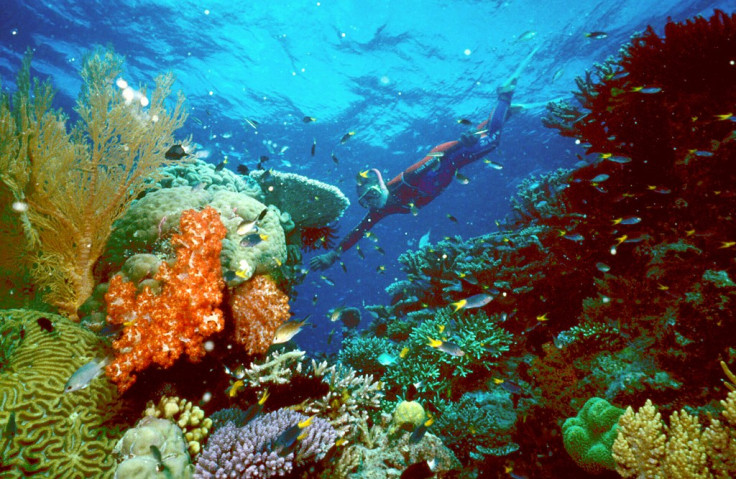Scientists Report Ocean Acidification Causes $1 Trillion Damage

Carbon dioxide emissions are dissolving in the ocean, making it more acidic and causing nearly $1 trillion worth of damage, according to a new report.
An international coalition of 30 scientists wrote "An Updated Synthesis of the Impacts of Ocean Acidification on Marine Biodiversity" which was presented at a UN meeting in South Korea on Wednesday.
The report states that ocean acidification has increased by around 26% since the pre-industrial era, and though such trends have happened before, the current speed of acidification is unlike anything in the last 66 million years.
The press largely overlooks ocean acidification because its economic impact is difficult to quantify, reported RTCC.
This report, however, says the damage done could amount to $1 trillion, mainly due to what is happening to the coral reefs at the ocean's floor.
The tropical reefs, on which 400 million people depend for their livelihood, are especially sensitive to the changing pH level.
The cold-water corals of Europe also support endangered sharks and commercially valuable fish species.
The report claims that it is "nearly inevitable" that emissions will further increase ocean acidity and put a number of rare animals out of house and home.
The report's lead editor Sebastian Hennige said that cold-water corals are at risk of completely vanishing.
He said: "There is a risk that their habitat will literally dissolve away, since living corals grow on structures made by their dead ancestors.
"These structures will be subject to chemical erosion over very large ocean areas if current trends continue."
The famed Great Barrier Reef off the coast of Australia is in a state of permanent decline, with ocean acidification preventing it from growing its necessary-to-survive calcium shells.
Murray Roberts, co-editor of the report and professor at Edinburgh's Heriot-Watt University, said: "At the end of the day, the only way to deal with ocean acidification is to reduce CO2 emissions.
"But for this to happen people first need to be aware that ocean acidification is an important issue."
At the UN climate summit in New York last month, the topic of ocean acidification was largely ignored by the esteemed delegates, which drove David Miliband, Labour frontbencher turned Global Ocean Commissioner, to warn: "There can be no solution to the climate challenge without a healthy ocean."
© Copyright IBTimes 2024. All rights reserved.





